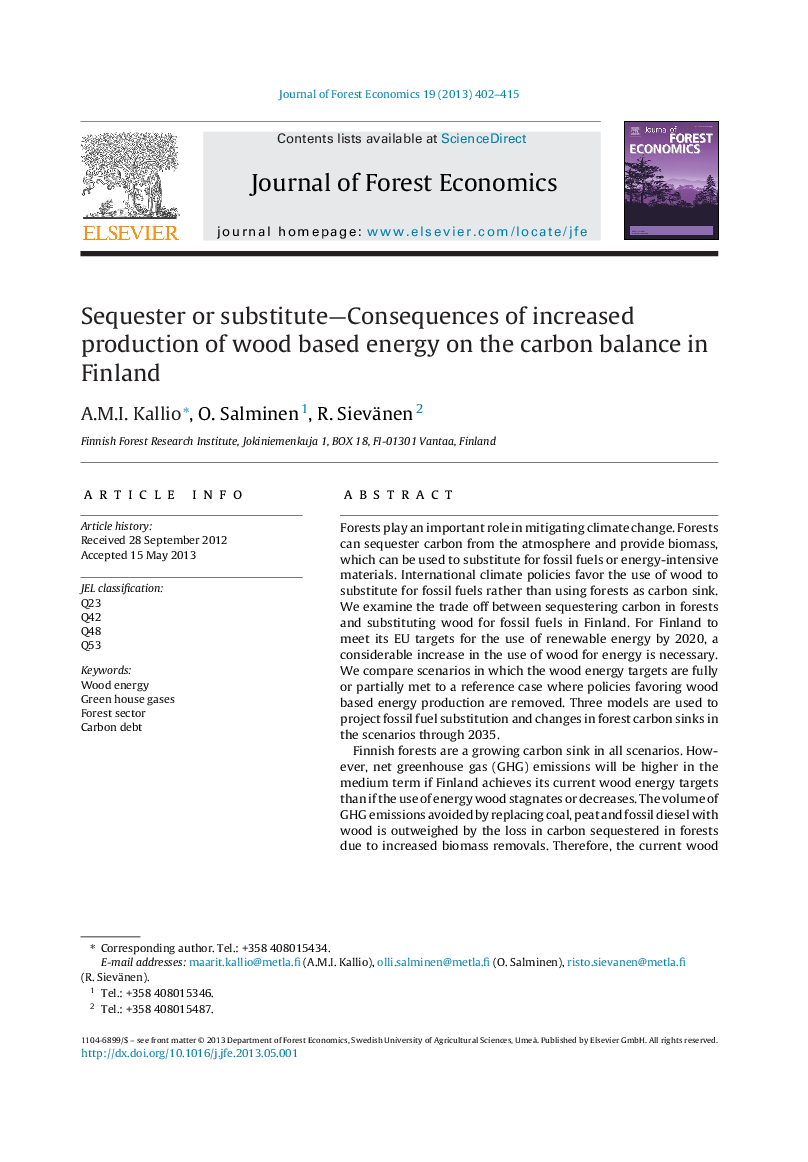| کد مقاله | کد نشریه | سال انتشار | مقاله انگلیسی | نسخه تمام متن |
|---|---|---|---|---|
| 92011 | 159891 | 2013 | 14 صفحه PDF | دانلود رایگان |
Forests play an important role in mitigating climate change. Forests can sequester carbon from the atmosphere and provide biomass, which can be used to substitute for fossil fuels or energy-intensive materials. International climate policies favor the use of wood to substitute for fossil fuels rather than using forests as carbon sink. We examine the trade off between sequestering carbon in forests and substituting wood for fossil fuels in Finland. For Finland to meet its EU targets for the use of renewable energy by 2020, a considerable increase in the use of wood for energy is necessary. We compare scenarios in which the wood energy targets are fully or partially met to a reference case where policies favoring wood based energy production are removed. Three models are used to project fossil fuel substitution and changes in forest carbon sinks in the scenarios through 2035.Finnish forests are a growing carbon sink in all scenarios. However, net greenhouse gas (GHG) emissions will be higher in the medium term if Finland achieves its current wood energy targets than if the use of energy wood stagnates or decreases. The volume of GHG emissions avoided by replacing coal, peat and fossil diesel with wood is outweighed by the loss in carbon sequestered in forests due to increased biomass removals. Therefore, the current wood energy targets seem excessive and harmful to the climate. In particular, biodiesel production has a significant, negative impact on net emissions in the period considered. However, we did not consider risks such as forest fires, wind damage and diseases, which might weaken the sequestration policy. The potential albedo impacts of harvesting the forests were not considered either.
Journal: Journal of Forest Economics - Volume 19, Issue 4, December 2013, Pages 402–415
